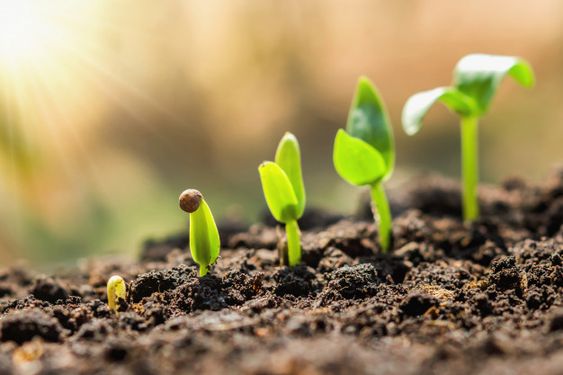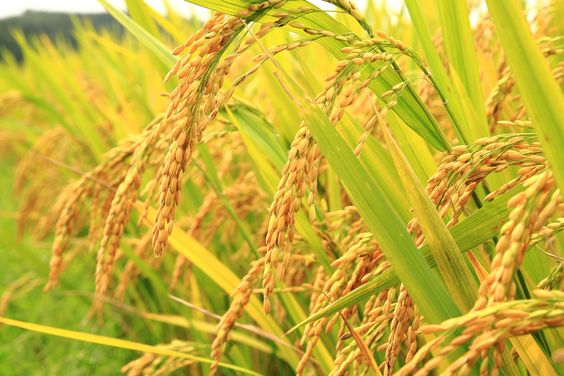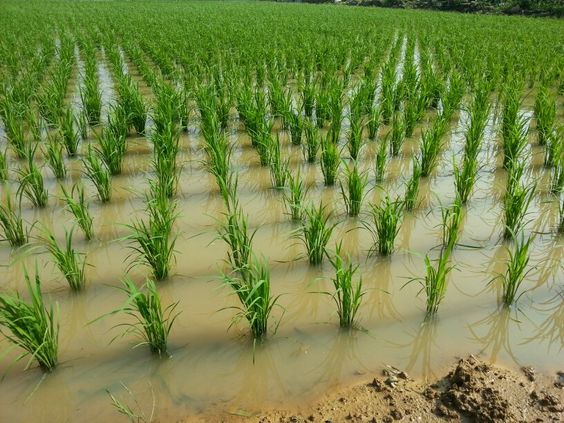Quality Plant Seeds in Smart Agriculture: Enhancing Efficiency and Sustainability
Quality Plant Seeds,In the ever-evolving landscape of agriculture, the quality of plant seeds plays a pivotal role in determining crop yields and overall agricultural productivity. The advent of Smart Agriculture has revolutionized the way seeds are developed, produced, and utilized, leveraging cutting-edge technologies to ensure higher efficiency and sustainability. This article delves into the importance of quality plant seeds in Smart Agriculture, highlighting the key technologies, benefits, and objectives that drive this transformative sector.
The Central Role of Seeds in Agriculture
Seeds are the foundation of any agricultural endeavor, serving as the starting point for the entire agricultural cycle. The quality of these seeds directly impacts crop growth, yield potential, and ultimately, food security. Research indicates that seed quality accounts for 20-25% of agricultural productivity, underscoring its critical importance.
Contents
- 1 Smart Agriculture Technologies for Seed Development
- 2 Smart Farming Technologies in Seed Production
- 3 Objectives of Smart Agriculture in Seed Production
- 4 Explanation of Smart Agriculture Technologies
- 5 Usefulness of Smart Agriculture Technologies
- 6 Advantages of Smart Agriculture Technologies
- 7 Future Directions
- 8 Implementation Strategies
- 9 Challenges and Limitations Quality Plant Seeds
Smart Agriculture Technologies for Seed Development
Quality Plant Seeds Smart Agriculture leverages advanced technologies to address these challenges. Key tools include:
- Big Data and Machine Learning : These technologies enable the collection and analysis of vast amounts of data related to seed production and quality compliance. This data-driven approach helps in identifying the best seed varieties for specific agro-climatic zones and optimizing resource use.
- Artificial Intelligence : AI algorithms can predict weather patterns, detect pests, and provide real-time intelligence on soil conditions, thereby enabling farmers to make informed decisions.
- Sensor and IoT Technologies: Sensors embedded in the soil or attached to drones provide real-time data on soil temperature, moisture, NPK measurements, and solar radiation. This data helps in preventing over- or under-watering, ensuring optimal plant growth.
- Cloud-Based Big Data Tools: Cloud platforms like Cropin facilitate advanced data analysis and modeling, providing recommendations for more intelligent decision-making. These tools help in examining historical plot performance, optimizing water and input usage, and automating alerts related to seed health and weather forecasts.
Smart Farming Technologies in Seed Production
Quality Plant Seeds Smart farming technologies are transforming the way seeds are planted and managed. For instance:
- Drones: Drones equipped with precision seeding technology can plant seeds more efficiently and accurately than traditional methods. For example, the XAG XPlanet drone can plant rice seeds in 120 seconds, compared to 25 minutes for manual labor.
- Smart Sensors: Sensors like Telesense’s GrainSafe product can reduce grain wastage by monitoring temperature and humidity levels in storage facilities. These sensors transmit data wirelessly to the cloud, where machine learning algorithms analyze the data to prevent spoilage.
Climate-Smart Crop Production Practices change poses significant challenges to agricultural productivity. Developing crop varieties that are resistant to drought, salinity, and flooding is crucial. National and international plant breeding efforts focus on creating well-adapted varieties that can thrive under various climatic conditions.
Farmer Participatory Plant Breeding
Quality Plant Seeds,Farmer participatory plant breeding involves collaboration between farmers and plant breeders to develop crop varieties that meet local needs. This approach ensures that new varieties are adapted to specific agro-climatic conditions and are more likely to be adopted by farmers.
Objectives of Smart Agriculture in Seed Production
The primary objectives of Smart Agriculture in seed production are:
- Yield Maximization: Ensuring that crops grow to their full potential by providing optimal conditions.
- Resource Optimization: Efficient use of water, fertilizers, and other inputs.
- Sustainability: Minimizing environmental impact through reduced chemical usage and waste management.
- Climate Resilience: Developing crop varieties that can withstand extreme weather conditions.
Explanation of Smart Agriculture Technologies
Quality Plant Seeds Smart Agriculture technologies are designed to enhance the efficiency and sustainability of agricultural practices. These include:
- Precision Agriculture: Using data and sensors to optimize planting, irrigation, and harvesting.
- Precision Seeding: Ensuring that seeds are planted at the right depth and spacing.
- Precision Irrigation: Delivering water exactly where it is needed, reducing waste.
- Crop Monitoring: Using drones and satellites to monitor crop health and detect early signs of disease or pests.
Usefulness of Smart Agriculture Technologies
Quality Plant Seeds Smart Agriculture technologies offer numerous benefits:
- Increased Efficiency: Automation and precision reduce manual labor and minimize errors.
- Improved Yields: Optimal growing conditions lead to higher crop yields.
- Reduced Costs: Efficient use of resources and reduced waste lower operational costs.
- Enhanced Sustainability: Minimized environmental impact supports long-term agricultural sustainability.
Advantages of Smart Agriculture Technologies
Quality Plant Seeds,The advantages of Smart Agriculture technologies are multifaceted:
- Data-Driven Decisions: Real-time data provides actionable insights for better decision-making.
- Scalability: Technologies like drones and sensors can be scaled up or down depending on the farm size.
- Cost-Effectiveness: Long-term savings from reduced waste and optimized resource use.
- Climate Adaptation: Developing climate-resilient crop varieties ensures food security despite changing weather patterns.
Future Directions
Quality Plant Seeds,As we move forward in the realm of Smart Agriculture, several key areas will continue to shape the future of seed production and utilization:
- Genomics and Gene Editing: Advances in genomics and gene editing technologies like CRISPR will enable the development of crops with enhanced traits such as drought resistance, improved nutritional content, and increased disease resistance.
- Precision Agriculture Platforms: Integration of precision agriculture platforms with cloud-based data analytics will provide farmers with real-time insights into soil health, weather patterns, and crop performance, allowing for more informed decision-making.
- Vertical Farming: The rise of vertical farming will continue to transform urban agriculture by providing controlled environments for seed germination and growth, reducing the need for arable land and minimizing environmental impact.
- Blockchain Technology: Blockchain technology will play a crucial role in ensuring seed authenticity and traceability, reducing the risk of counterfeit seeds and promoting fair trade practices.
- International Collaboration: Global partnerships and collaborations will be essential in sharing knowledge, resources, and best practices to address the challenges posed by climate change and ensure food security worldwide.
Implementation Strategies
Quality Plant Seeds,Implementing these technologies and strategies requires a multi-faceted approach:
- Government Support: Governments can provide incentives, subsidies, and regulatory frameworks that support the adoption of Smart Agriculture technologies.
- Private Sector Investment: Private sector investment in research and development is crucial for driving innovation in seed production and agricultural technologies.
- Farmer Training: Extensive training programs for farmers are necessary to ensure they are equipped with the skills required to operate and benefit from these advanced technologies.
- Public Awareness: Raising public awareness about the benefits of Smart Agriculture can help build support and encourage further investment in this field.
Challenges and Limitations Quality Plant Seeds
Quality Plant Seeds,While Smart Agriculture holds immense promise, it also faces several challenges and limitations:
- Cost: The initial investment required to adopt these technologies can be prohibitively expensive for many small-scale farmers.
- Infrastructure: The need for robust digital infrastructure, including high-speed internet and reliable power supply, can be a significant barrier in rural areas.
- Data Security: The increasing reliance on data-driven decision-making raises concerns about data security and privacy.
- Regulatory Frameworks: Existing regulatory frameworks may need to be updated to accommodate the new technologies and practices emerging in Smart Agriculture.
Quality plant seeds are the cornerstone of Smart Agriculture, and leveraging advanced technologies is crucial for maximizing yields and ensuring sustainability. By adopting big data, AI, sensors, and IoT, the agricultural sector can overcome traditional challenges and adapt to the demands of a changing climate. The future of agriculture is bright, and it is being planted with the seeds of innovation and technology.




